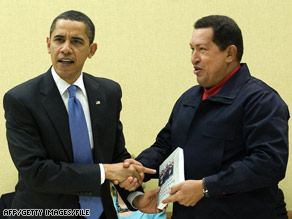In one of the mini-climactical scenes from Hashr's Nek Perveen, the reprobate "hero," Afzal, having squandered all his wealth, returns to his house. His beautiful, devoted wife, Perveen -- who has been subjected to all kinds of devilish devices to force her to lose her "honour," but has withstood the test -- receives him with open arms. He confesses that under the influence of alcohol he has committed a murder.
Perveen (the embodiment of goodness) is only concerned with her husband's welfare. She begs him not to think of her wretched state, but to change his bloodstained clothes and leave the town at once to escape the long arm of the law.
The faithful old servant, on the other hand, offers an even better solution. He is three scores and upwards; he has lived long enough. What better last service can he render to the family but to confess that he, and not his young master, has committed the crime? If he were hanged, he would be happy to have laid down his worthless life in the service of those it has been his great and good fortune to serve.
Ideal ingredients of a melodrama. The scene begins with the "good" Perveen singing a song to bemoan her plight. When she ends her song, the faithful retainer, Tehseen, enters the stage and informs her that he has been unable to trace her husband. It is at this point that Afzal, the profligate husband, walks in:
Perveen: My loved one, where have you been? Where did you live for so long? Answer me. Oh God, you are trembling
Afzal: Touch me not. I am the vomit of sin, a dung heap, a cesspit… come not near me, unless you wish to sink into a mire of indignity. Fear me, for I am a hateful murderer.
Pretty trite stuff, you might think and yet, in an experimental production I conducted recently, as soon as the depraved husband waved his wife away, "Touch me not…" the audience began to listen, not with a sense of relishing the bombast of a by-gone age but attentively, savouring the language. When the repentant Afzal ended his speech with:
There was a round of applause. Verse, even prosaic verse, spoken theatrically, has always elicited a deferential response from our audiences.
The theatre for which Agha Hashr wrote was neither uncertain nor in a state of ferment. Everything was in its place. The sole purpose of a dramatic performance was, as the chorus in a Broadway musical put it:
'We hate to overtax you
We're here to relax you.'
Even if he had believed in "women's lib," Hashr could not have expressed himself in a theatre which demanded that the established order must remain intact. The dramatists too, were inclined to think that way. In Hashr's plays, kings and noblemen become dissolute, but through some last-minute dramatic stratagem, see the error of their ways; those who rise above their station meet their come-uppance; the servants stay in their place; the women remain subdued and dutiful.
Hashr's plays are not entirely devoid of rebellious women. In Shaheed-e-Naz, the cheeky house-wife, Fitna, soliloquizes:
"I cannot imagine why this rigmarole called marriage was created, unless the intention was to subjugate us and deprive us of our independence. A man may give the glad eye to whoever he wants, but if a woman were to dare to look at a man, her eyes are gouged out. Do women not have heart, desires, feelings…?
But such utterances are given only to menial characters, the saucy maid, or the side-kick of a comedian. Women of noble birth only mouthed what was expected of them: "We women cry out at tyranny, but in our hearts we admire a tyrant. Govern us, we cry to our husbands - and if you do, we moan, but our soul is at peace." I quote from a Victorian pot-boiler, Cynthia's Secret.
These sentiments delighted the playgoers no end. It must be borne in mind that an Urdu play drew an almost exclusively male audience, who wanted entertainment, amusement, and a lot of show-business, unmixed with highbrow stuff, and untainted with art.
More than anything else, they wanted to feel assured that the real place of the woman was to be at the beck and call of her husband. And so, when the penitent Afzal (in Nek Perveen) declares that he is not worthy of his good wife because he has squandered all her possessions, Perveen kneels down and says:
"No, no, no, my lord and master. I don't want money, dresses or jewels. I only want you. A woman's ornament is her husband. Not gold, not silver, but you. You alone are my wealth."
The audience responded with thunderous applause. Hashr was a past-master at crafting such show-stopping moments. Silver King urf Nek Perveen (the full title of the play) was a colossal commercial success.
Agha Hashr who rose to become the star playwright of both the Madden and the Alfred (the two most established and solvent) theatrical companies, had humble beginnings. In his younger days he had gained a strong reputation for winning Munaziras (open debates) against Christian missionaries. He used to say, not without a touch of pride that he, like Shakespeare, was a man without a degree and that degrees did not turn men into dramatists.
It is for researchers to determine when the epithet of "Indian Shakespeare" was conferred upon him and by whom. It could have been a princeling or one of his Parsi impresarios. Be that as it may, the bill-boards, and his published plays, always had the words "Indian Shakespeare," in parenthesis, underneath his name, except in one copy of Aseer-e-Hirs that I saw, in which the epithet was written above his own name.
Hashr has written somewhere that his method of writing a play is amusing, to say the least. In a preface he writes, and I translate. "Just as in a Marsya there are different sections, i.e. the serene morning, the heat of the afternoon, the eulogy of the sword, the battle scenes, the mourning, etc., so I divide my play into different sections : the romantic scenes, comic scenes, court scenes, scenes of villainous plotting and scheming -- and, of course, the songs and the musical numbers. I write each of these scenes, separately, as and when I am in the mood for writing a certain kind of a scene. Then, when it is time to get the play ready, I blend them, as required". (my italics)
The last line says a lot. It mattered not how even the great Hashr wanted to fashion his plays, he had to bow to the wishes of his impresario in matters of structure, theme, songs and the number of comic scenes.
(to be continued)












